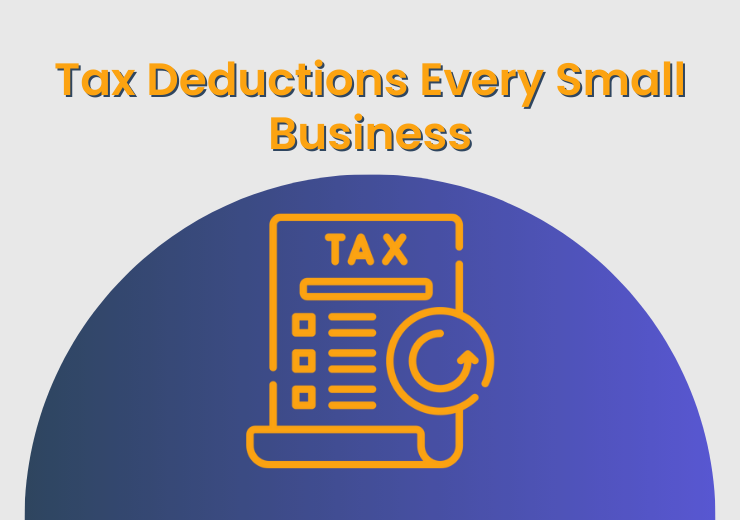Running a small business comes with its fair share of challenges, but understanding tax deductions can help alleviate some of the financial burden. As a small business owner, being aware of the various deductions available to you can significantly impact your bottom line. In this article, we’ll delve into 10 essential tax deductions every small business owner should know about.
Introduction to Tax Deductions for Small Business Owners
Tax deductions play a crucial role in minimizing taxable income for small business owners. By strategically leveraging deductions, entrepreneurs can lower their tax liabilities and keep more of their hard-earned money. Let’s explore some key tax deductions that can benefit small businesses.
Home Office Deduction
For many small business owners, the home office deduction is a valuable tax-saving opportunity. To qualify, you must use a portion of your home regularly and exclusively for business purposes. This deduction allows you to deduct expenses such as mortgage interest, utilities, and property taxes associated with your home office.
Business Expenses Deduction
Small business owners can deduct various expenses incurred in the course of running their businesses. This includes expenses such as office supplies, advertising costs, and professional fees. Keeping detailed records of these expenses is essential for claiming this deduction.
Vehicle Expenses Deduction
If you use a vehicle for business purposes, you may be eligible to deduct certain expenses related to its use. This can include mileage, fuel costs, and maintenance expenses. Keeping accurate records of your business-related mileage is crucial when claiming this deduction.
Health Insurance Premiums Deduction
Small business owners who pay for their health insurance may be able to deduct a portion of their premiums. To qualify, you must meet specific criteria set by the IRS. This deduction can provide significant savings for self-employed individuals and small business owners.
Retirement Plan Contributions Deduction
Contributing to a retirement plan not only helps secure your financial future but also offers tax benefits for small business owners. Contributions to qualified retirement plans, such as SEP-IRAs or Solo 401(k)s, are tax-deductible within certain limits. Taking advantage of this deduction can help you save for retirement while lowering your tax bill.
Depreciation Deduction
Depreciation allows small business owners to deduct the cost of assets over time, reflecting their gradual decline in value. This deduction applies to tangible assets such as equipment, machinery, and furniture used in your business. Understanding depreciation methods and asset lifespans is essential for maximizing deduction.
Education Expenses Deduction
Investing in education and training can benefit both you and your business. Small business owners may be able to deduct certain education expenses related to their trade or profession. This can include tuition, books, and course materials. However, not all educational expenses are deductible, so it’s essential to consult the IRS guidelines.
Start-up Costs Deduction
Starting a new business often involves significant expenses upfront. Fortunately, the IRS allows small business owners to deduct certain start-up costs, such as market research, advertising, and legal fees. Understanding what expenses qualify and how to amortize them over time can result in substantial tax savings.
Charitable Contributions Deduction
Giving back to the community can also benefit your bottom line through charitable contribution deductions. Small business owners can deduct donations made to qualified charitable organizations, subject to certain limitations. Supporting causes you believe in while lowering your tax bill is a win-win situation.
Conclusion
Navigating the complex world of tax deductions for small business owners, it’s essential to take advantage of every opportunity to minimize your tax liability. By understanding and strategically leveraging deductions, you can keep more of your hard-earned money and reinvest it back into your business growth.
FAQs (Frequently Asked Questions)
1. Can I deduct expenses for a home office if I also use the space for personal activities?
Yes, as long as the space is used regularly and exclusively for business purposes during business hours, you can still qualify for the home office deduction.
2. What types of vehicle expenses can I deduct for my business?
You can deduct expenses such as mileage, fuel, maintenance, and insurance costs directly related to business use of your vehicle.
3. Are there limits to how much I can deduct for retirement plan contributions?
Yes, contribution limits vary depending on the type of retirement plan you have. It’s essential to stay updated on current IRS regulations regarding retirement plan contributions.
4. Can I deduct the full cost of a large asset, such as a piece of equipment, in the year of purchase?
Depending on the asset and its intended use, you may be able to deduct the full cost in the year of purchase using bonus depreciation or Section 179 expensing.
5. What documentation do I need to support my charitable contributions deduction?
You should keep records of any cash donations, as well as written acknowledgments from the charitable organization for donations exceeding $250.

